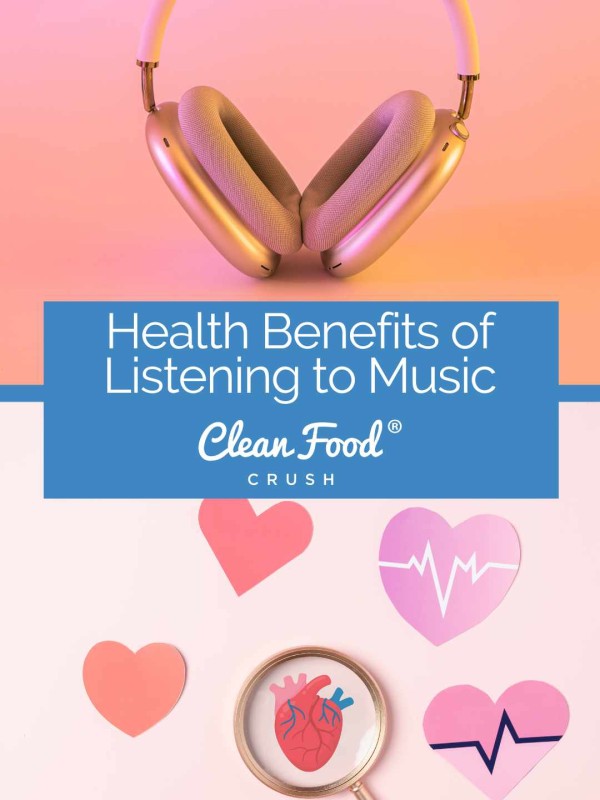This post contains affiliate links. Please see our disclosure policy.
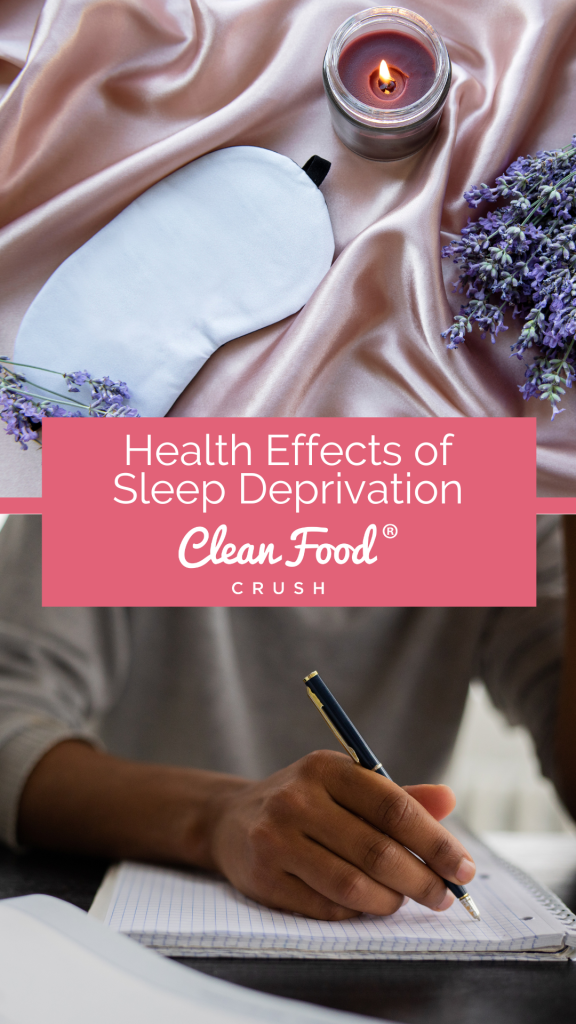
Health Effects of Sleep Deprivation
Sleep is an incredibly vital part of overall health and something we often discuss here at CleanFoodCrush.
It affects weight loss, mental health, muscle building, concentration, social lives, and so much more!
Most experts recommend adults get 7-9 hours of sleep every night (others, such as children and teenagers, need more).
Consistently getting less than about 7 hours can lead to many health consequences.
To live the happiest and healthiest life possible, you can’t neglect sleep.
If you do and you’re not getting enough good quality sleep, you will likely suffer sleep deprivation.
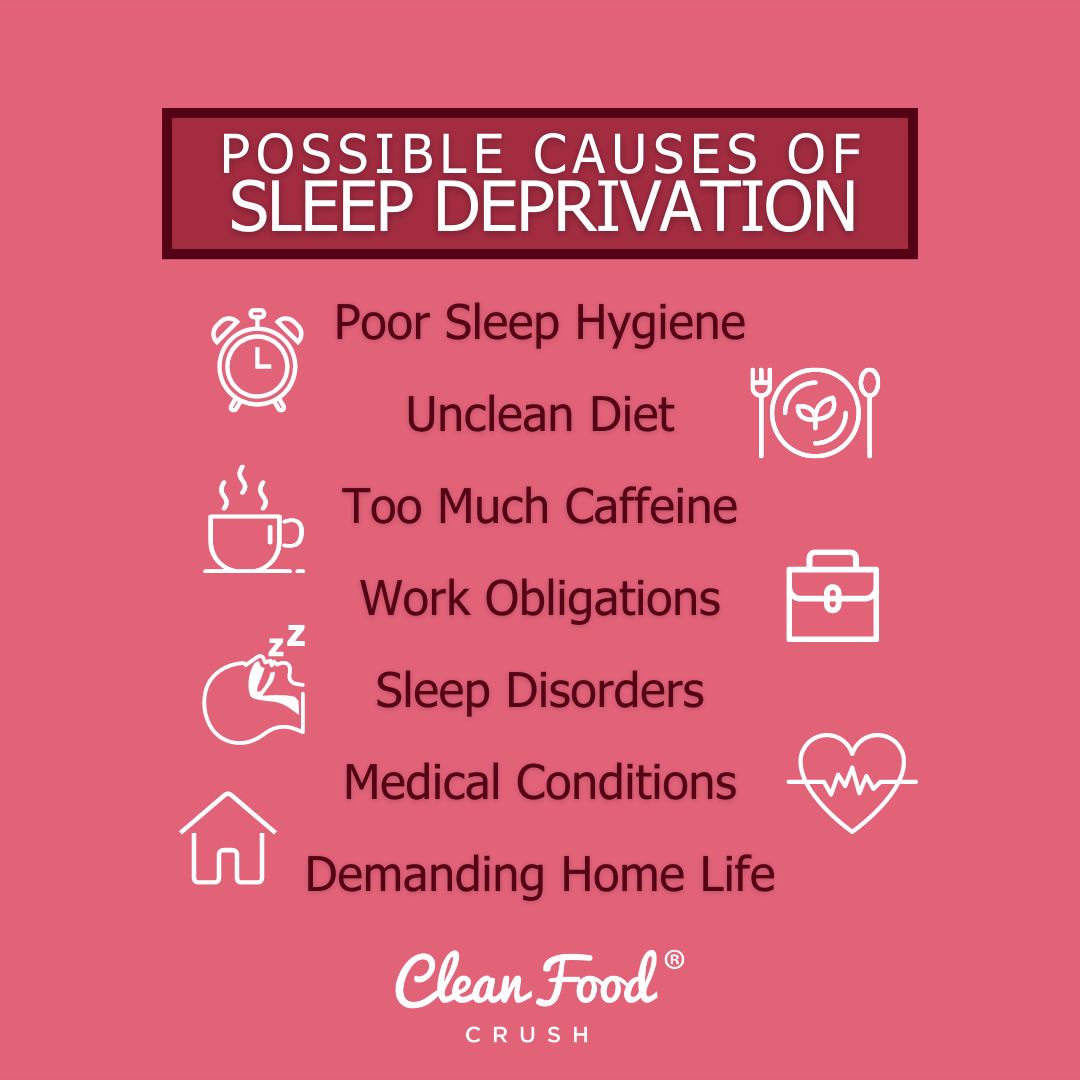
There can be several underlying reasons for not getting enough rest and sleep deprivation.
Poor sleep hygiene, work obligations, an unhealthy diet, sleep disorders, mental health issues, and other voluntary lifestyle options, such as too much screen time, can all contribute.
The consequences and health effects of sleep deprivation can vary.
Here are 6 examples:
Cognitive Issues
While asleep, your body restores chemical balances, makes thought connections, and strengthens your brain’s ability to process new information.
So, not getting enough sleep can cause slower thinking and reduced concentration. It can also negatively impact short-term and long-term memory.
Mood Changes
You might also notice a rise in irritability when you’re overly tired. These sleep-deprived mood swings can negatively impact personal relationships, work, and other aspects of life.
Have you ever found yourself abnormally quick to anger or having extreme reactions to relatively minor annoyances, then taken a nap or gotten a good night’s sleep and woken up with a fresh perspective?
There’s a reason for the saying “woke up on the wrong side of the bed” because sufficient rest is essential for mood regulation.
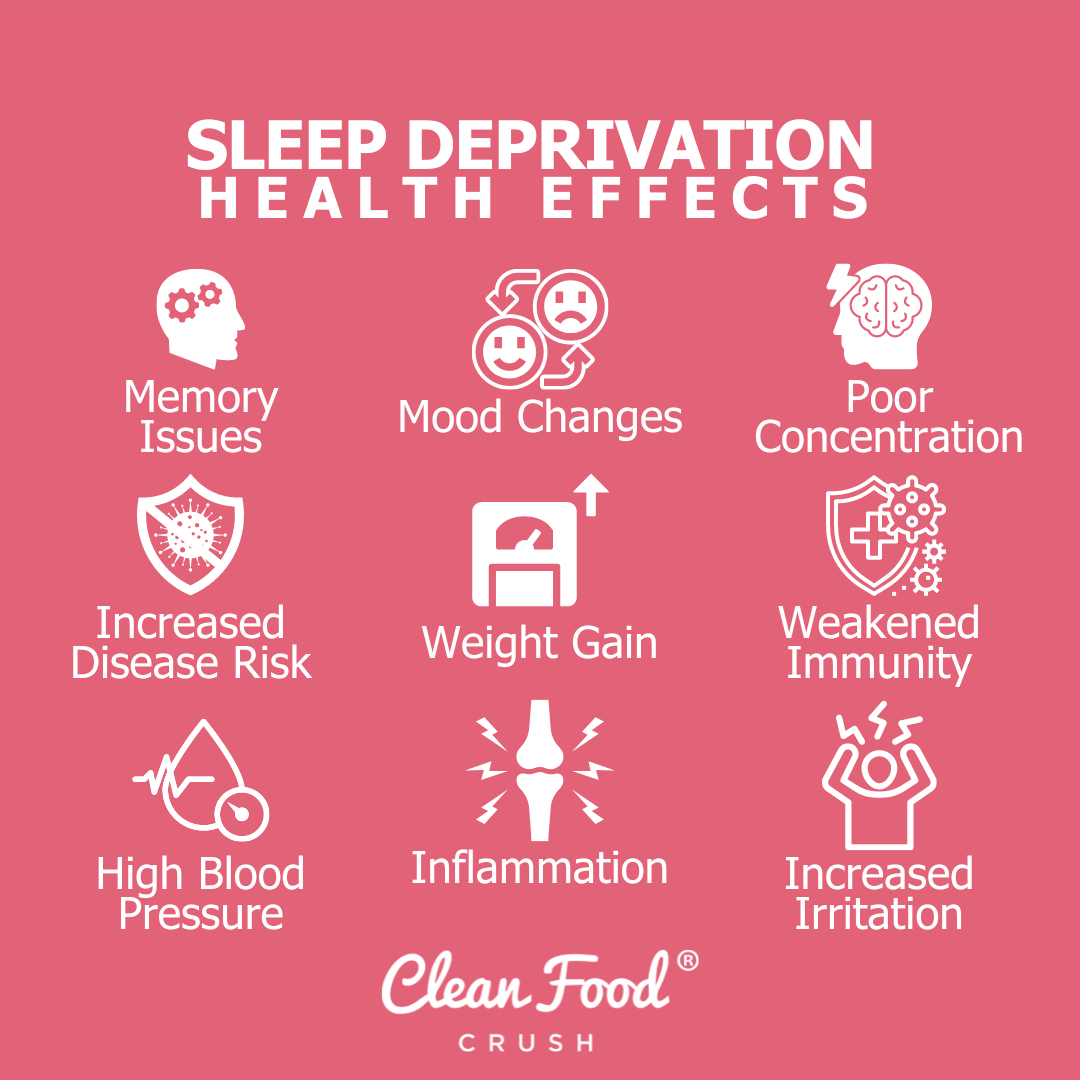
Mental Health Decline
I know this is super similar to the first two examples, but there’s a reason I’m stressing the mental impact! Getting chronically poor sleep may contribute to mental health disorders such as depression and anxiety.
Extreme sleep deprivation can also cause hallucinations and trigger mania in people prone to these psychological risks, such as those with bipolar disorder.
That’s why one of the best ways to care for your mental health is to ensure you’re getting enough quality sleep and have good sleep hygiene and practices.
Weakened Immune System
Your immune system also relies on sleep to stay healthy and fight against harmful substances such as bacteria and viruses.
While you’re dreaming, your body produces infection-fighting antibodies to protect your body.
Lack of the necessary sleep weakens your immune system, meaning your body’s defenses against foreign invaders and sicknesses are lowered, and you’re more likely to get sick when exposed to germs.
So, while it’s crucial to sleep all year, it’s wise to be extra careful to get enough sleep when it’s cold and flu season.
Increased Disease Risk
It’s not only viruses that we need to worry about when we’re sleep deprived. Constant, long-term sleep deprivation can increase the risk for several chronic diseases.
Your body works on healing and repairing itself during sleep, including heart and blood vessels, and supports the growth of hormones that your body needs to build muscles, cells, and tissues that affect all bodily functions.
Allowing yourself to rest fully for at least 7 hours a day is, therefore, vital for keeping your heart, brain, and other organs healthy. It’s also essential for regulating blood sugar, blood pressure, inflammation, etc.
Unsurprisingly, sleep deprivation and insomnia are linked to an increased risk of diabetes, heart disease, kidney disease, strokes, and more.
It can also worsen chronic conditions such as respiratory disease, diabetes, and even arthritis.
Weight Gain
As I’ve explained previously, your body rebuilds itself and forms muscles while sleeping.
Pairing strength training and muscle growth with sleep can genuinely aid with fat loss.
Taking the sleep away interrupts muscle growth and, consequently, fat loss.
A tired brain and body are also far more likely to make poor health choices.
Production of and health of our hormones relies on healthy rest, and without it, your inhibitions are lowered, and the hormones that stimulate appetites are increased.
When you’re full, the chemicals that signal to your brain are thrown off when you haven’t received enough sleep, meaning you’re more likely to overindulge in unhealthy foods.
Pair the previous aspects with increased depression and anxiety symptoms (which can cause weight gain) and a decline in decision-making skills, and you get a consequence of weight gain.
That’s why sleep is the secret weapon of fat loss and muscle building and is vital for maintaining a healthy weight.
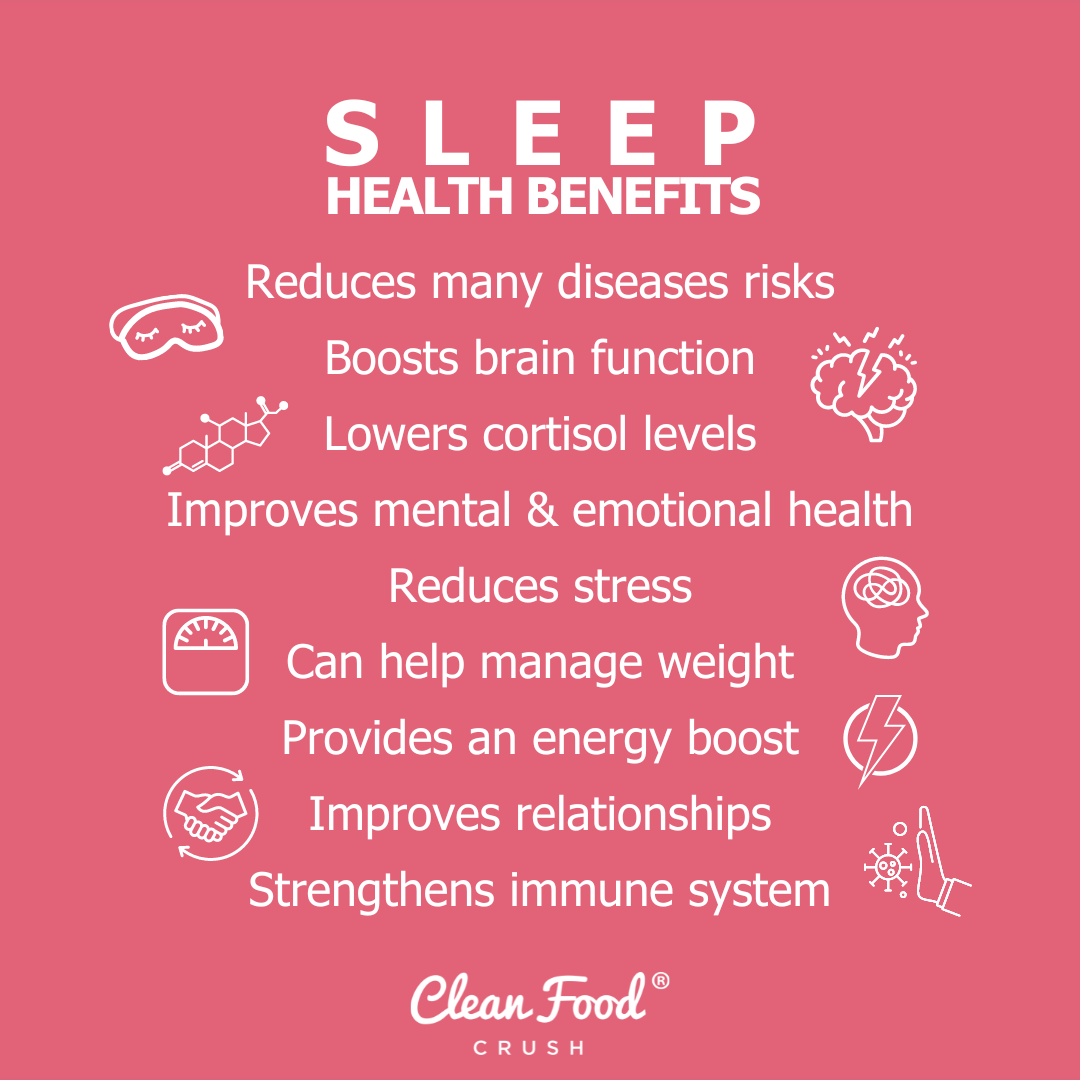
We’ve talked a lot about the importance of sleep in the past here at CleanFoodCrush, and I hope this article helped explain in a little more detail WHY we stress this particular aspect of healthy living.
Sleep deprivation and its consequences are real and something that we can avoid!
If you want to read more about how sleep affects your health, check out this article.
Check out this link for 13 awesome and simple tips to improve your sleep life,
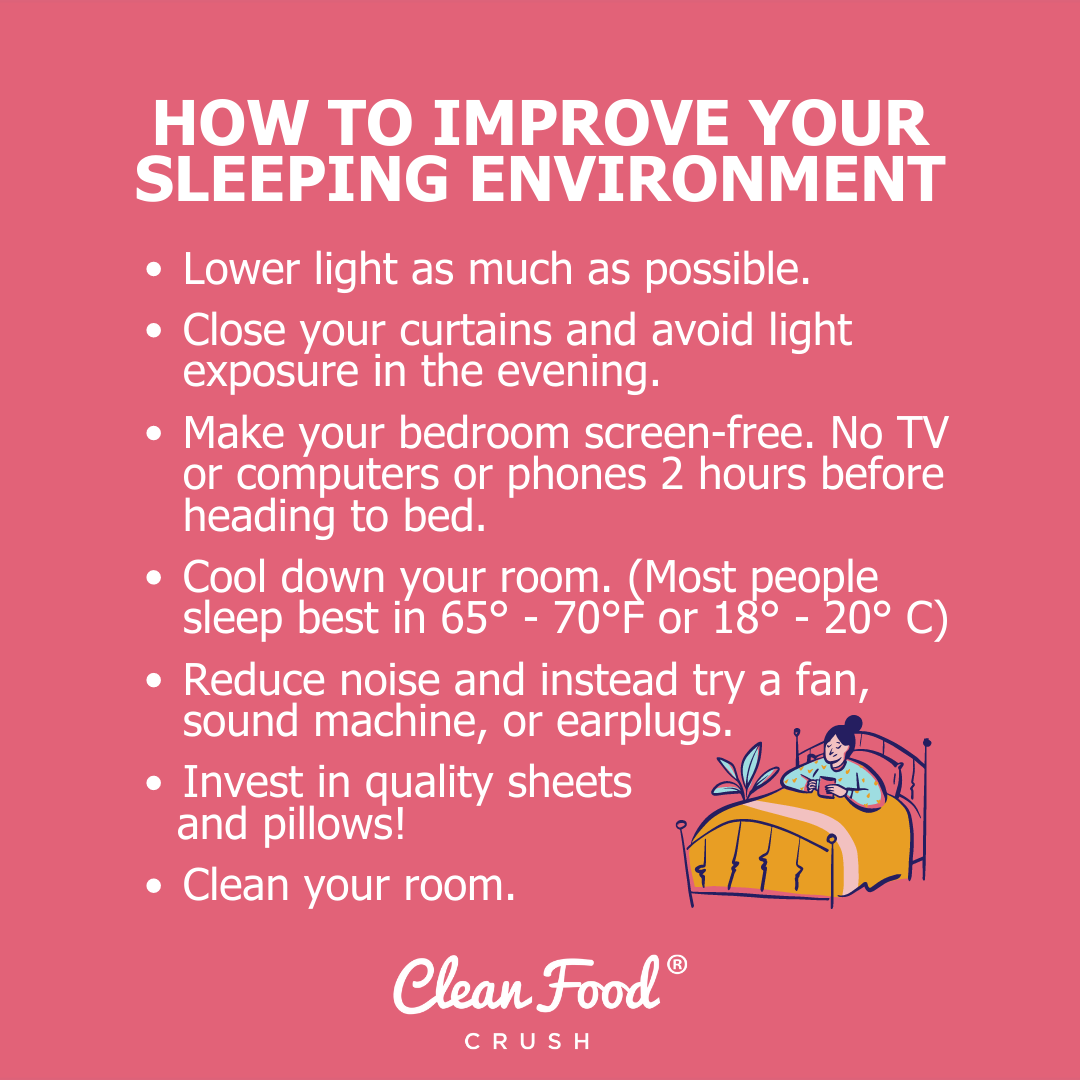
Looking for natural remedies to improve sleep? Go here for some natural remedies to sleep better!
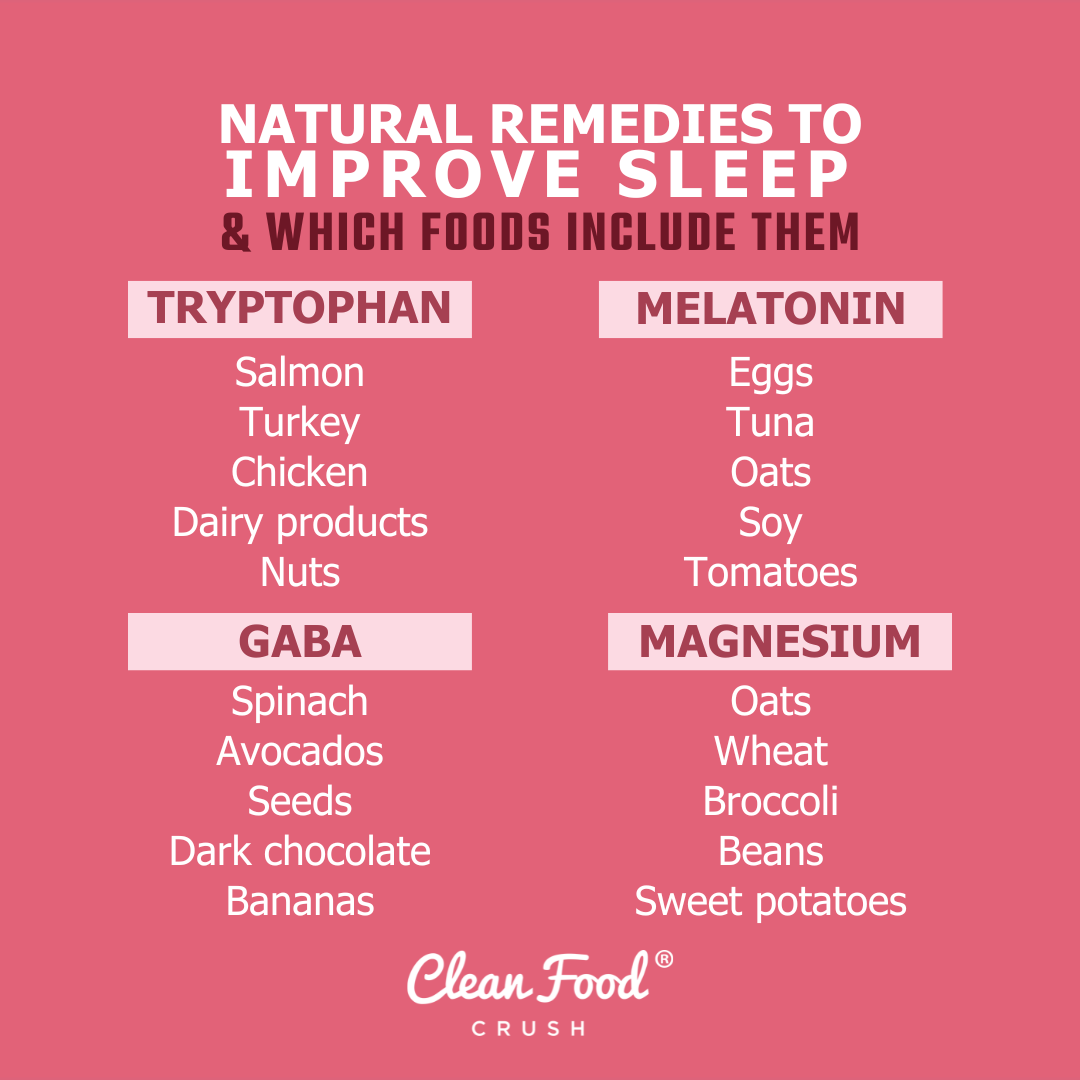
Also, if you’re interested in the health benefits of napping, we talk about that in this article.
Life can be exhausting, so we all deserve to rest every now and again. Keep up the excellent work, CRUSHers!




